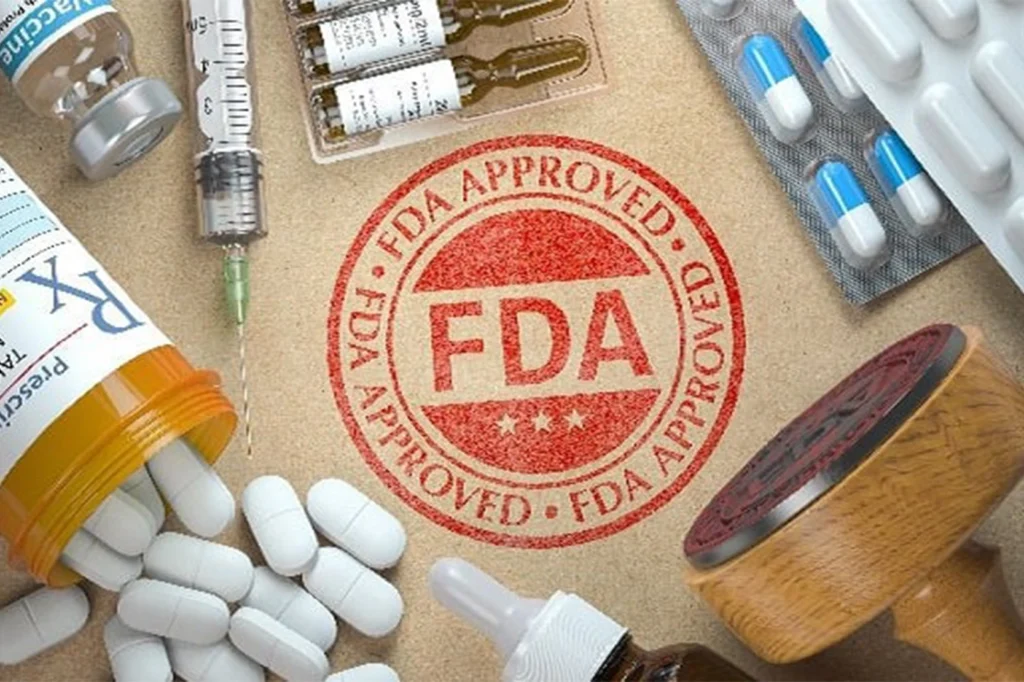As an experienced healthcare professional, I help you navigate the recall with practical steps, monitoring advice and lifestyle support. Bonus: guidance on hidden risks in fitness supplements (yes, protein powders contain high levels of lead in some cases) and why quality matters just as much as dosage.
Why Cholesterol Medication Atorvastatin Recall 2025:
When I first heard about the recall of Atorvastatin (calcium form) in 2025, I immediately thought of my patients many rely on statins to keep their cholesterol under control and prevent future cardiovascular events. In two quick paragraphs:
In September–October 2025, the U.S. Food & Drug Administration (FDA) announced a nationwide recall of certain lots of atorvastatin calcium tablets from Ascend Laboratories and manufacturer Alkem Laboratories because the tablets failed dissolution specifications, meaning they may not dissolve properly in the body and hence may not deliver the intended therapeutic effect.
If you or a loved one take atorvastatin (or a generic equivalent) for cholesterol management, this recall matters. Even though the recall is classified as Class II (meaning risk of serious harm is low), the fact that the drug may not work as expected means you should talk with your healthcare provider don’t stop the medication abruptly, but don’t ignore this notice either.
Also important: in the context of cholesterol medications and general heart-health supplements, I’ve seen separate issues where Protein Powders Contain High Levels of Lead so if you’re using multiple supplements, side-products or adjuncts, keep an eye on safety across the board.
Your doctor can advise whether an alternate statin or dose is required.
What Exactly Happened With the Atorvastatin Recall:
In this section we’ll unpack the timeline, the reason behind the recall, what “failed dissolution” means, and how this affects patients.
- According to FDA enforcement data, the recall was initiated by Ascend Laboratories (distributor) and dates to around September 19, 2025, and was classified as a Class II recall on October 10, 2025.
- The recall reportedly affects over 140,000 bottles of atorvastatin calcium tablets (various dosages: 10 mg, 20 mg, 40 mg and 80 mg; different bottle counts) distributed nationwide.
- The reason: the tablets failed to meet dissolution specifications in lab testing meaning they may not dissolve as intended in the body, which can reduce effectiveness.

Why dissolution matters:
“Dissolution” refers to how a pill disintegrates and dissolves in the gastrointestinal tract to release its active ingredient. If a tablet fails dissolution testing, it may not release the drug properly or on time, which means the patient may receive less active medication than assumed. This is especially critical for medications like atorvastatin that are used for long-term management of cholesterol and prevention of heart disease.
Because of this, even though the recall was Class II (serious harm is unlikely), the efficacy could be compromised and for someone whose heart risk depends on consistent therapy, that’s still a serious issue.
Why this matters to patients:
- If you’re taking atorvastatin (or generic equivalent) and the lot you have is among the recalled ones, you may not be getting the full benefit.
- Skipping or switching medication without consulting your doctor is dangerous especially if you have cardiovascular disease, high cholesterol, or previous events like heart attack or stroke.
- Even though the recall doesn’t automatically cause immediate harm, ineffective therapy can increase your long-term risk.
- It’s a prompt to check ALL medications and supplements you are taking. On that note: if you are also using any protein powders or other heart-health supplements, be aware there are separate reports that Protein Powders Contain High Levels of Lead, which adds another layer of risk for heart health and overall wellness.
How to check if your medication is affected:
Here I share practical steps you can take (as I do with patients) to verify and act.
Step-by-step checking:
- Locate your bottle of atorvastatin or generic equivalent: check dosage (10 mg/20 mg/40 mg/80 mg) and the National Drug Code (NDC) if printed. The recall identified specific NDCs. Prevention
- Check the lot number and expiration: Compare against recall notices. If your bottle matches any of the affected lots, stop using it only after talking to your doctor.
- Contact your pharmacist or prescriber: They can verify whether your lot is affected and provide a replacement or alternate therapy safely.
- Do not discontinue therapy suddenly: Especially with statins, abrupt cessation can cause rebound cholesterol elevations or destabilize underlying cardiovascular conditions.
- Report concerns: If you suspect your medication did not seem to be working (cholesterol unexpectedly high again, new symptoms), mention this to your doctor and ask whether you may have had a sub-effective lot.
Things to ask your doctor:
- “Is my lot included in the recall?”
- “Should I switch to a different manufacturer or dosage form?”
- “How soon should we check my cholesterol and other markers after switching?”
- “Are any of my other medications or supplements requiring review?” (Reminder: check if protein powders contain high levels of lead especially if you’re using them)
- “Do we need to adjust my monitoring plan considering this recall?”
What to do if you are concerned about your heart-health regimen:
Here we talk about how to manage the transition, risk mitigation, and what monitoring you should focus on.
Transitioning Safely:
If you discover your atorvastatin lot is recalled, work with your healthcare provider to switch to a verified, unaffected statin or medication. Depending on your cholesterol levels, cardiovascular risk, and medical history (e.g., diabetes, prior heart attack), your doctor may continue with atorvastatin from another manufacturer or switch to a different statin or non-statin alternative.
Monitoring & Follow-up:
- Re-check your lipid panel (total cholesterol, LDL, HDL, triglycerides) within 4-12 weeks of switching medications.
- Review liver enzymes, muscle symptoms (statins may rarely cause muscle side-effects) and overall cardiovascular status.
- If you also use supplements, especially workout or fitness-related ones (which is common when people focus on cholesterol and health), ask if they’ve been tested for contamination or heavy metals. For example, research and consumer reports have shown that protein powders contain high levels of lead in certain unsafe products a red flag for cardiovascular safety.
- Keep a medication list and update it with your pharmacist every 6–12 months this helps catch recalls or other drug-safety alerts.
Lifestyle Reinforcement:
Even though medication plays a key role, this is an opportunity to tighten lifestyle control:
- Maintain heart-healthy diet (plenty of vegetables, fish, whole grains, limited saturated fat).
- Regular exercise (150 minutes/week moderate intensity).
- Weight control, avoiding smoking, moderating alcohol.
- Regular blood pressure and diabetes screening.
- Keep informed about drug safety alerts.
Why these kinds of recalls happen & what it means for you:
Understanding the manufacturing side strengthens your confidence and helps you be proactive. Drugs like atorvastatin undergo rigorous manufacturing controls batch testing, dissolution tests, stability testing. The recall here was triggered because the tablets failed dissolution specifications. That means either the formulation, manufacturing conditions, or storage compromised how the drug dissolves.
These incidents remind us that even approved medications can be subject to manufacturing error or quality deviations and patients should stay vigilant.
Regulatory significance and patient trust:
The FDA’s system for drug-recalls (including how it classifies them) is designed to help protect patients. A Class II recall (as in this case) means “use of or exposure to the product may cause temporary or medically reversible adverse health consequences or where the probability of serious adverse health consequences is remote.”
For patients, this means high vigilance, but not panic. If your medication is unaffected, continue as before. If it is affected, act promptly with your physician.
What it Means Long-Term:
- It reinforces that medication adherence is only part of the equation quality matters.
- It highlights the importance of communication between patient, prescriber and pharmacist.
- It shows why you should keep informed about drug safety alerts because your health and risk management depend on it.
- And for anyone using supplements or non-prescription health products: quality issues (e.g., heavy metal contamination) are real. Remember: protein powders contain high levels of lead in certain cases a separate but relevant risk.
FAQ
Most frequent questions and answers
No. The recall is due to possible reduced effectiveness (failed dissolution), not confirmed harm. But it means you may not be getting full benefit, so you should contact your doctor and likely switch to a verified lot or different manufacturer.
You should not stop without medical supervision. Lifestyle changes are essential but for many people with high cholesterol or heart disease risk, medication remains a key pillar. Your doctor can advise whether an alternate statin or dose is required.
Be cautious. While the recall affects a medication, there are separate alerts that protein powders contain high levels of lead in some cases, which can negatively impact heart and overall health. Review your supplements, pick verified brands, and ask your provider if they are safe in context of heart health.
Conclusion:
The cholesterol medication atorvastatin recall 2025 serves as a crucial reminder to stay informed and proactive about your health. Always verify your medication lot numbers, communicate with your doctor or pharmacist, and avoid stopping any statin abruptly. While the recall mainly concerns dissolution issues not toxicity it can still affect treatment results. Stay alert for future FDA updates, maintain heart-healthy habits, and ensure all supplements you use are safe especially since some protein powders contain high levels of lead.








